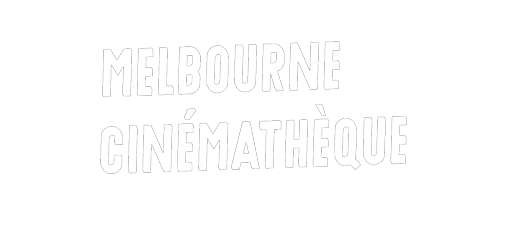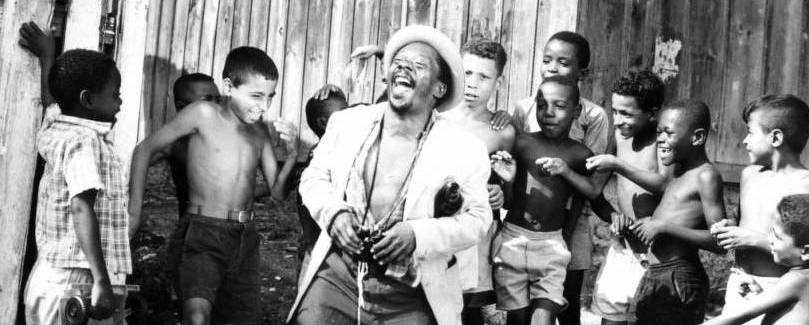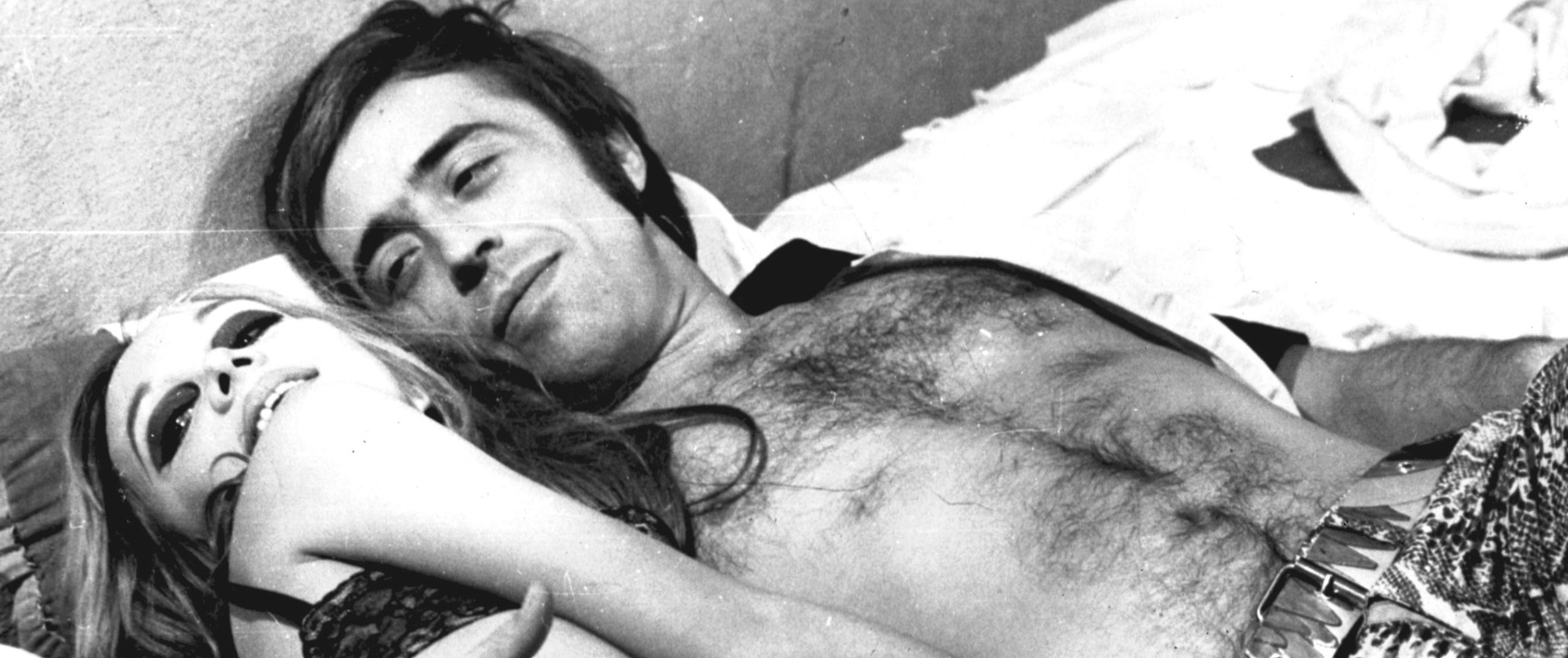
18 October – 1 November
The 1960s was a time of great upheaval in Brazil, as it was the world over. During this rich cultural period cinema went through a moment of radical flux, as did music and the other visual arts. Shadowed by a decade of repressive dictatorship, censorship decrees, and an exodus of dissidents, many of the films produced experimented with narrative, design, collage and music. This led to a diverse slate of films that were influenced by world cinema from the USA, the Soviet Union, Italy, France and the rest of Europe, but that were also distinctly Brazilian. With a focus on the revolutionary, this season presents a vibrant collection of narratively and formally transgressive works made by some of the country’s most prolific filmmakers and recognisable actors. At the same time, it celebrates the communal and artistic collaborations that made the country’s cinema unique. From Cinema Novo to the explosive Cinema Marginal, as well as works outside of these movements and spanning an era where black and white transformed into colour, this season traces the shifts in the political and sociological tone of Brazilian cinema from the early 1960s to the mid-1970s. This is a very rare chance to see such an historical survey in Australia and to discover why filmmaker Rogério Sganzerla (director of 1968’s incendiary The Red Light Bandit) suggested that, in the Brazilian cinema of this period, “anything can happen”.

7:00pm ASSAULT ON THE PAY TRAIN
Roberto Farias (1962) 102 mins – Unclassified 15+
The true story of one of the most famous heists in Brazil’s history – taking place in Rio de Janeiro in 1960 – Farias’ powerful thriller is less concerned with the robbery itself than its aftermath and the effect it has on the six men who carry it out. Masterfully blending elements of noir and neorealism, the film’s concern with broader social issues, underlying poverty and the mythology of criminality (alongside the humanisation of its characters) builds to a searing critique of Brazil’s class and racial hierarchy.
4K DCP.
CTEQ ANNOTATION
Assalto ao trem pagador (Roberto Farias, 1962)
by Jeremy Lehnen
9:00pm TOCAIA NO ASFALTO
Roberto Pires (1962) 101 mins – Unclassified 15+
Written, directed and edited by Pires, this early work of Brazil’s politically charged Cinema Novo movement entwines themes of crime, love and mysticism. The film stars Agildo Ribeiro – known mostly for his comedic roles across film, television and theatre – in an uncharacteristic turn as a hitman assigned to kill an idealistic yet controversial politician hailing from the state of Bahia. Winner of the Saci Prize in 1963, the biggest award in Brazilian cinema at the time, and later chosen for restoration by the Cinemateca Brasileira.
CTEQ ANNOTATION
Tocaia no Asfalto (Roberto Pires, 1962)
by Filipe Furtado

7:00pm ANTES, O VERÃO
Gerson Tavares (1968) 80 mins – Unclassified 15+
This story of a marriage failing within the trapping of success is brought vividly to life by two of Brazilian cinema’s greatest actors, Jardel Filho and Norma Bengell. Structurally inventive, unsettling and demonstrating the clear influence of American film noir and European arthouse cinema, Tavares’ Rio de Janeiro-set film has attracted comparisons to the work of Resnais and Antonioni. Having been subject to considerable censorship on its release, this was thought to be a lost film until it was discovered and restored by archivist Rafael de Luna Freire.
CTEQ ANNOTATION
No longer lost, now remembered: A conversation with Rafael de Luna Freire about Antes, o Verão (Gerson Tavares, 1968)
by Eloise Ross
8:35pm THE RED LIGHT BANDIT
Rogério Sganzerla (1968) 92 mins – Unclassified 15+
Based on the real-life São Paulo criminal João Acácio Pereira da Costa, who was arrested only a year before the film’s release, this “western about the Third World” (trailer) channels true outlaw aesthetics. A scrappy, collage-like and heavily Godard-influenced feature debut from 21-year-old Sganzerla, it became a key work of Cinema Marginal, returning the wider Cinema Novo movement to its original social and political focus. In 2015, it was voted the 6th greatest Brazilian film of all time by Associação Brasileira de Críticos de Cinema.
To be preceded by two shorts by the key woman filmmaker of the Cinema Novo movement: A Entrevista Helena Solberg (1966) 20 mins – Unclassified 15+; and Meio-dia Helena Solberg (1970) 10 mins – Unclassified 15+.
CTEQ ANNOTATIONS
The Red Light Bandit (Rogério Sganzerla, 1968)
by Guilherme Carréra
A Entrevista (The Interview, 1966) and Meio-Dia (Noon, 1970), by Helena Solberg
by Fabio Andrade

7:00pm A RAINHA DIABA
Antonio Carlos de Fontoura (1974) 110 mins – Unclassified 18+
Inspired by the life of Rio de Janeiro criminal João Francisco dos Santos – who also served as the basis for 2002’s Madame Satã – Fontoura’s ground-breaking depiction of the cross-dressing, gay drug queenpin is unashamedly excessive, embracing a camp, transgressive aesthetic entirely at odds with the military dictatorship then ruling Brazil. Selected for Directors’ Fortnight at Cannes but mostly unseen since, the film’s triumphant 4K restoration screened at the Sao Paulo Film Festival in 2022. Stars Milton Gonçalves and features a wonderful score by Guilherme Magalhães Vaz.
CTEQ ANNOTATION
A Rainha Diaba (Antonio Carlos de Fontoura, 1974)
by Mateus Nagime
9:05pm MACUNAÍMA
Joaquim Pedro de Andrade (1969) 95 mins – M
With the strengthening of the military regime from 1968, many of the artists associated with Cinema Novo were forced to leave Brazil or explore more allegorical critiques of society. Fully embodying the Tropicália spirit, and based on a key modernist novel by Mário de Andrade, this absurdist, radical, fluid and bracingly centrifugal portrait of the underlying cannibalistic nature of consumerism is “possibly the most vibrant, entertaining and challenging film to emerge in the 1960s in Brazil” (Stephanie Dennison and Lisa Shaw).
35mm print courtesy of the National Film and Sound Archive, Australia.
CTEQ ANNOTATION
Macunaíma (Joaquim Pedro de Andrade, 1969)
by Gustavo Furtado